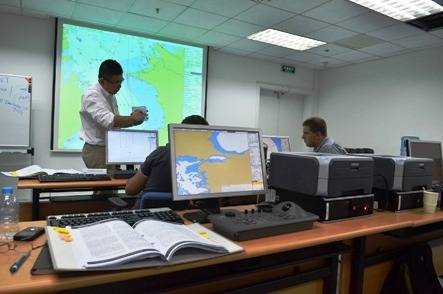
Furuno Shanghai has started to provide product-specific ECDIS training for its important Chinese market.
Furuno Shanghai is the sixth training facility to join the Furuno NavSkills training network and with its strategic location it is strengthening FURUNO's provision of type specific ECDIS training to the many end users around the world.
The type specific ECDIS training provided by Furuno Shanghai is in full compliance with the company's training standards and the instructors have been trained in Furuno's INS Training Centre Denmark to ensure that their skills and competences match the requirements for training under Furuno's NavSkills framework.
"Training and crew competences are important to us", says Rick Chen, Vice General Manager of FURUNO Shanghai. "China is one of the very important ship building nations, and as such we believe that it is important to be able to provide our high quality training to the Chinese crews. At the same time we can offer overseas ship owners building vessels in China to have the crew trained inside China on their way to go onboard the new buildings".


